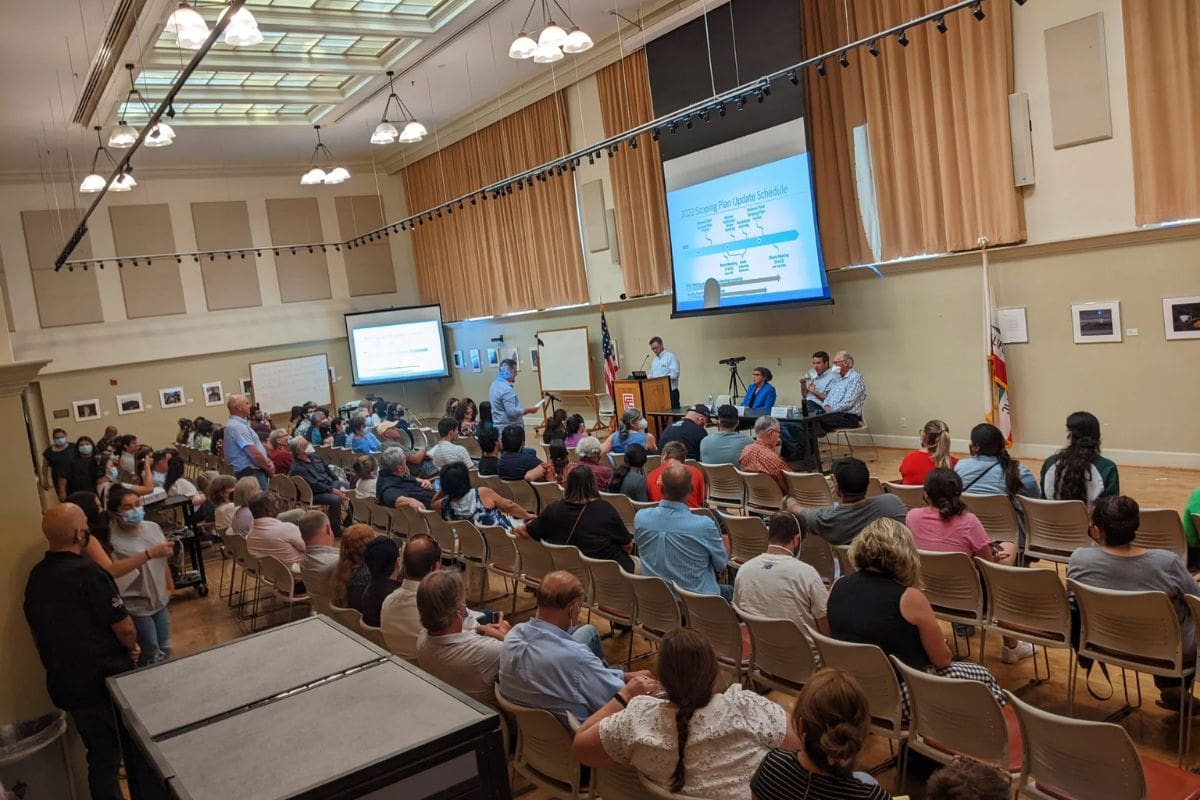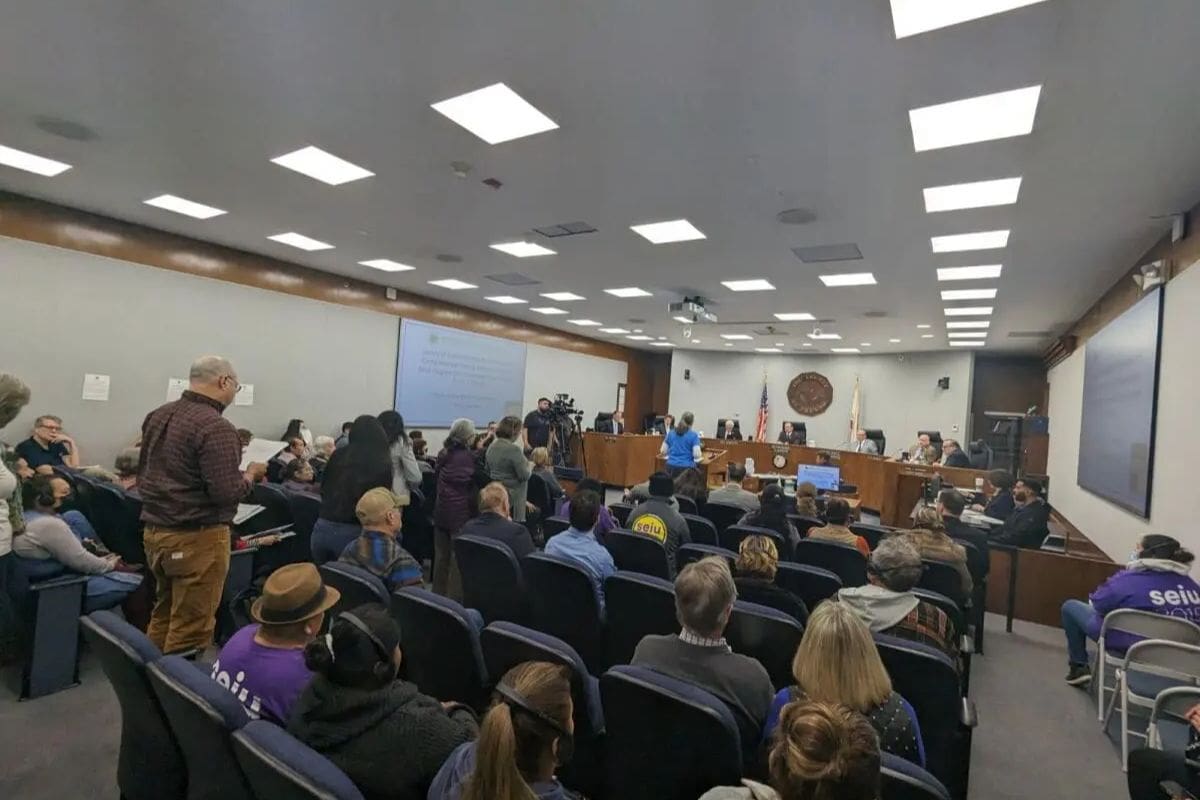Fresno County Shocking: In a surprising turn of events, Fresno County has recently been thrust into the spotlight for its unprecedented 300% overreach of California’s climate goals. The controversial decision, which saw the General Plan Update unanimously approved, has raised questions about the county’s priorities and commitment to environmental sustainability.
With a strong emphasis on revenue-generating projects, concerns have been voiced regarding the lack of adequate mitigation plans in place. As the community grapples with the implications of this decision, the focus now shifts to the development of a Climate Action Plan and the looming funding challenges that lie ahead.
Additionally, the controversy surrounding the proposed Industrial Park and its potential impact on river protection adds another layer of complexity to the situation.
Controversial General Plan Update Approved Unanimously
Following a unanimous decision by Fresno County supervisors, a controversial update to the county’s General Plan has been approved, sparking concerns over potential environmental repercussions and unchecked development. The vote signifies a pivotal moment that could shape the future landscape along the Kings and San Joaquin River, raising alarms about the impact on air quality, farmland preservation, and adherence to California’s climate goals.
With the potential to exceed the county’s state-mandated climate emissions budget by a staggering 300%, the decision has ignited a fierce debate between proponents of economic growth and advocates for sustainable development. Critics argue that the approval may set a dangerous precedent for prioritizing short-term gains over long-term environmental sustainability, urging a more thorough examination of the consequences before proceeding with widespread development projects.
As Fresno County embarks on this new chapter, it is essential to closely monitor the implementation of the General Plan update and ensure that responsible stewardship of the region’s natural resources remains at the forefront of decision-making processes.

Emphasis on Revenue-Generating Projects
Amidst concerns about potential environmental repercussions and unchecked development following the controversial approval of Fresno County’s General Plan update, a notable emphasis on revenue-generating projects has emerged, drawing criticism from various stakeholders.
The General Plan heavily favors projects geared towards generating revenue, such as a massive industrial park, suburban expansion, and a contentious 7,000-acre luxury development. Critics, including the City of Fresno and the local Sierra Club, have raised alarms, highlighting that the plan appears to undermine crucial environmental safeguards.
Of particular concern is the possibility that these revenue-driven projects could lead to a significant increase in emissions, potentially surpassing established targets. The prioritization of economic gains over environmental protection has sparked debates about the long-term sustainability of such endeavors.
As Fresno County moves forward with these lucrative but contentious projects, the balance between economic development and environmental conservation remains a critical point of contention among stakeholders who advocate for responsible and sustainable growth practices.
Concerns Over Inadequate Mitigation Plans
Critics have raised significant concerns regarding the inadequate mitigation plans in Fresno County’s proposed development projects, particularly in relation to agricultural resources, air quality, and greenhouse gas emissions.
While Supervisor Steve Brandau justifies the plan by highlighting the necessity for housing options outside the city center, opponents question its compliance with state climate mandates. The lack of robust mitigation measures poses a threat to Fresno County’s environmental sustainability goals.
Without proper safeguards, the proposed projects could significantly impact vital agricultural resources, worsen air quality, and contribute to heightened greenhouse gas emissions.
It is imperative that Fresno County reevaluates its mitigation strategies to align them more closely with California’s ambitious climate targets. Failure to address these concerns could not only jeopardize the county’s environmental well-being but also undermine its commitment to combating climate change.
Stakeholders must work together to ensure that development projects prioritize sustainability and implement effective mitigation plans that safeguard agricultural resources, preserve air quality, and reduce greenhouse gas emissions.
Next Steps: Climate Action Plan and Funding Challenges
The pressing need to develop a comprehensive Climate Action Plan in Fresno County is underscored by the uncertainties surrounding funding challenges and the imperative to bridge the emissions gap. As the county moves forward, it faces the daunting task of reconciling its growth ambitions with the stringent climate mandates set forth by the state of California. The development of this plan is crucial not only for meeting regulatory requirements but also for ensuring a sustainable and resilient future for all residents.
One of the primary obstacles on this path is the uncertain availability of funds. Fresno County must navigate how to secure the necessary resources to implement the Climate Action Plan effectively. Moreover, the county must address the infrastructure needs of its historically underserved rural communities while striving to reduce emissions and combat climate change. Balancing these priorities will require innovative solutions, collaboration across sectors, and a steadfast commitment to environmental stewardship.
The challenges ahead are significant, but with strategic planning and dedicated support, Fresno County can chart a course towards a more sustainable and environmentally conscious future.

Also Read: California Game-Changing Move Assemblyman Puts Tribes at Helm of Sports Betting!
Controversy Surrounding Industrial Park and River Protection
Navigating through the complexities surrounding a proposed 3,000-acre industrial park, Fresno County finds itself embroiled in a controversy that has drawn attention from various stakeholders, including California Attorney General Rob Bonta. The vote addressing this issue has sparked criticism, with concerns lingering about potential environmental justice implications despite revisions. The proposed changes in the General Plan have raised questions about the county’s dedication to protecting the environment, especially along the ecologically significant San Joaquin and Kings Rivers.
The controversy surrounding the industrial park extends beyond mere land use debates; it delves into the heart of environmental stewardship and social equity. Residents and activists are closely monitoring the developments, advocating for sustainable practices and responsible decision-making. Attorney General Rob Bonta’s involvement signals the significance of this issue at a state level, emphasizing the need for thorough consideration and adherence to environmental regulations. As Fresno County moves forward, balancing economic development with environmental conservation will be paramount in resolving this contentious issue.
News In Brief
Fresno County faces scrutiny after approving a General Plan Update that surpasses California’s climate goals by 300%. The unanimous decision sparks concerns about unchecked development’s impact on air quality, farmland loss, and climate emissions. Critics question the emphasis on revenue-driven projects, including an industrial park and a luxury development, fearing a prioritization of short-term gains over environmental sustainability. Inadequate mitigation plans raise alarms about potential harm to agricultural resources and increased emissions. The county must now develop a robust Climate Action Plan amidst funding challenges to reconcile growth ambitions with state climate mandates. Controversy surrounds a proposed industrial park, drawing attention from the Attorney General and highlighting the need for balancing economic development with environmental conservation.

